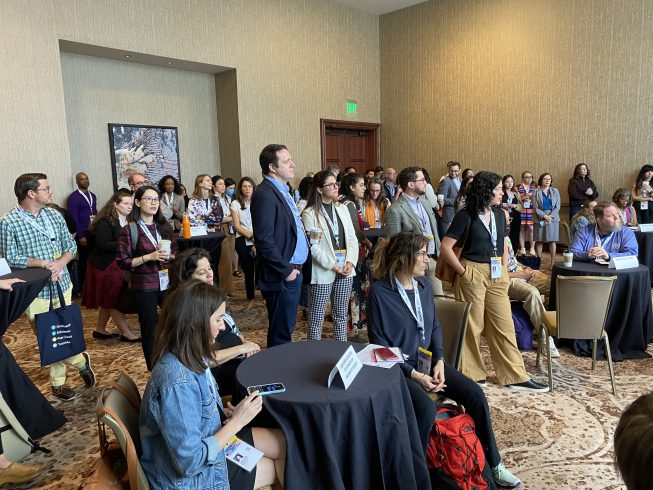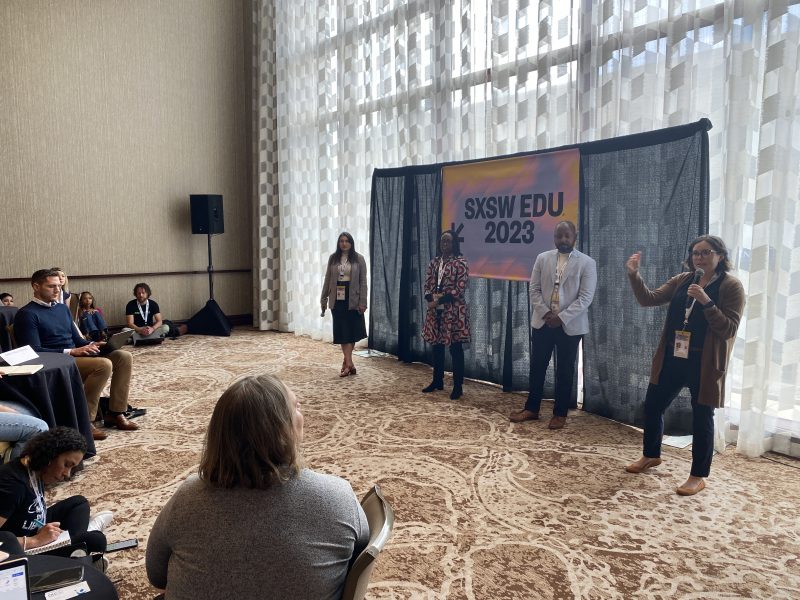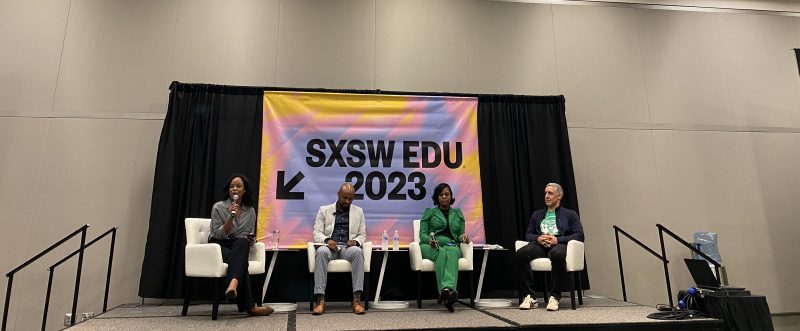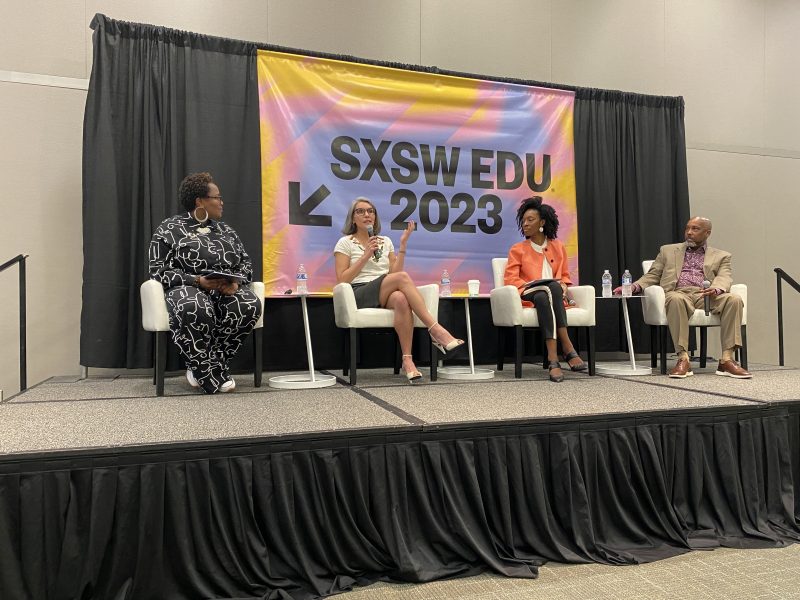Shifting Resources and Practices in Education Philanthropy

By Nikhil Gehani, Partner, Communications
In early March, New Profit brought together several funders, founders, and social impact leaders for a series of discussions about education philanthropy at SXSW EDU 2023. The annual event, held in Austin, Texas, fosters innovation and learning within the education industry.
The conversations covered timely topics including the role of philanthropy in education, the power of parent engagement, and how ‘proximity as a technology’ can improve outcomes and impact when it comes to funding education organizations. It’s difficult to convey the entirety of the brilliance and insights shared—both from the stages and from the audience—but there were a few particular moments worth highlighting, especially as we mark New Profit’s 25th anniversary by reflecting on and sharing our learnings over the years.

Molly O’Donnell, Lead Partner on New Profit’s Portfolio team, kicked things off on Monday morning with a highly-interactive session that brought the audience into the discussion about how to shift resources and practices in order to advance a new era of equity and shared power. As she invited session attendees to join the conversation about reimagining the role of philanthropy in education, she reminded us that “we’ve never seen an equitable world.”
Joined by Isa Ellis of the Bill & Melinda Gates Foundation, Hassan Hassan of 4.0, and Jamie Jutila of the Walton Family Foundation, this was an opportunity for the speakers and attendees to engage in dialogue around early-stage funding, broadening and diversifying funder pipelines, building effective partnerships, storytelling, and sourcing and building the capacity of proximate entrepreneurs. Asked about the ways in which they are shifting giving practices in their own organizations, each speaker shared approaches that demonstrate tangible opportunities to reimagine the role of philanthropy:
“Our fundamental belief [at 4.0] is that the most important type of expertise is proximity; your own experience that allows you to see what others might not be able to see.” Hassan Hassan, 4.0
“How can we, as a funder, get beyond the usual folks we know? We’ve been working in deep partnership with other funders to build the type of infrastructure and collaborative funding that allow us to pool our resources and support founders we otherwise wouldn’t have met.” Jamie Jutila, Walton Family Foundation
“We invest in intermediaries, especially regional and hyper-local, who are closer to the problem and also closer to the solutions.” Isa Ellis, Bill & Melinda Gates Foundation

Later that day, Kimone Simpson, part of New Profit’s Education team, led a panel discussion on how parent engagement can improve student outcomes, “seeing that parents are experts in their children.” The discussion revolved around one primary question: How do we co-create a new education system that is equitable and works for everyone?
As a former teacher, Jamar Wilson, Director of Organizing and Advocacy at Murmuration, underscored that “having an excellent school with great teachers is not enough. [Students] need healthcare, they need safe places to go after school, they need more. The people being most affected need to be at the center of the table designing the policies in education.”
Darya Davis, of DC PAVE, reminded the audience that “often parents are invited to the table, but sometimes parents need to create their own tables” to make sure they’re seen as having an equal part in the education system. But parents aren’t there to antagonize schools, they are there to champion schools. Too often, they’re held at arm’s length.
Daniel Anello, CEO of Kids First Chicago, rounded out the panel with a comment that resonated deeply with our team at New Profit: “Parents will always put their kids first. It’s a really powerful insight that shouldn’t be an insight at all. There’s an idea of expertise in education that we need to challenge. Not having the people who are most impacted in the room when it comes to policy, that’s a great way to do harm.”

On the final day of SXSW EDU, Tulaine Montgomery led a panel that explored how proximity—a topic that is woven throughout New Profit’s investing, policy advocacy, and impact model—can be used as a technology for change, something that “isn’t that complicated, but is still counter-cultural in the field of philanthropy.”
Dr. Carmen Rojas, President and CEO of the Marguerite Casey Foundation, reminded those of us in philanthropy of our core purpose: “We’re in a weird moment where philanthropy is trying to situate itself as a protagonist in a fight instead of position itself as a vehicle for getting money out. Our innate expertise and knowledge is to give out money—as quickly as possible and as much as possible.”
Sam Cobbs, CEO of Tipping Point Community, is bringing more proximate voices onto his Board of Directors. “These are people who are doing amazing things, but with lived experience with poverty. When I’m trying to explain something to my board, they get it.”
At Echoing Green, proximity is “figuring out as staff how we can get out of the way—our fellows are the most effective problem solvers,” as Dr. Kimberly Osagie, VP of Programs, said. “In governance, we center our fellows. For follow-on investments, we center our fellows. Our fellows are our strategic advisors, so this is how we practice proximity: We truly trust [proximate] folks to be the leaders.”
Tulaine closed the session with a reminder that proximity is not simply inclusion, or changing the demographics and stopping there. It’s about unlocking the genius that has been ignored and overlooked for far too long and left impact on the table.